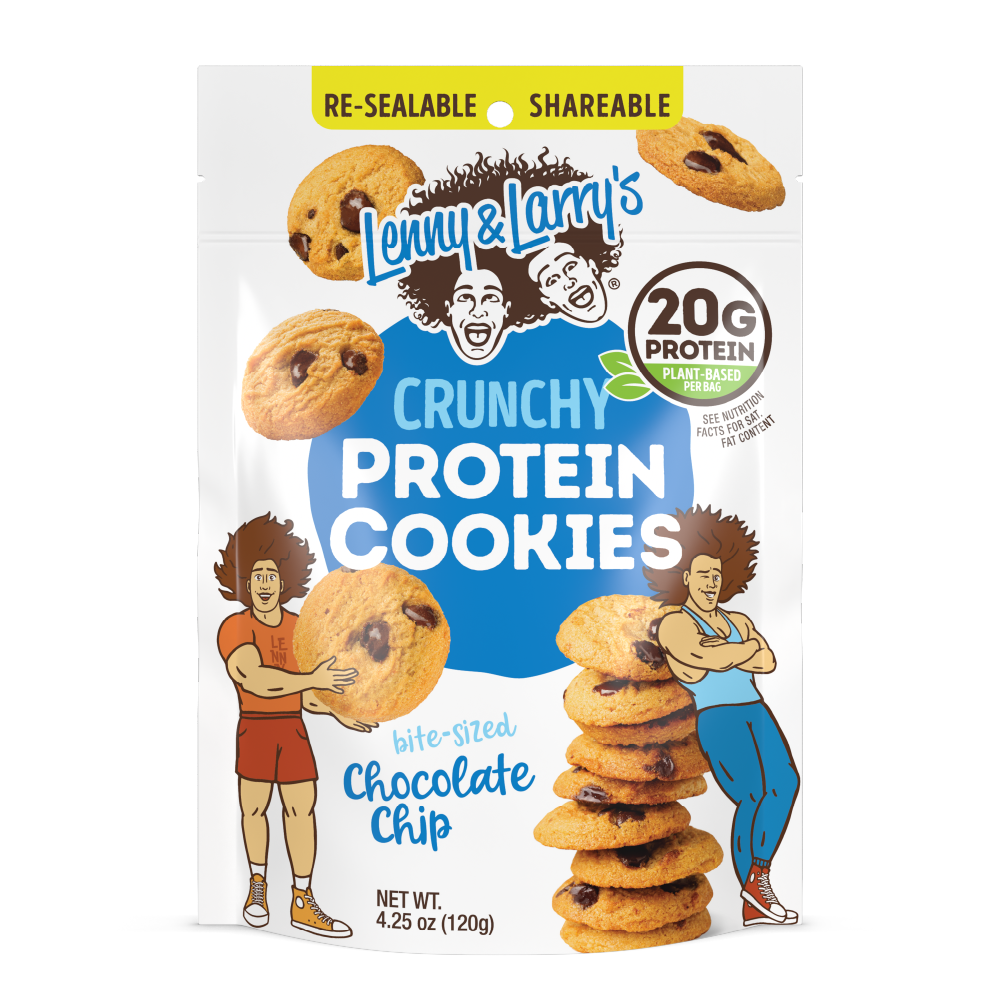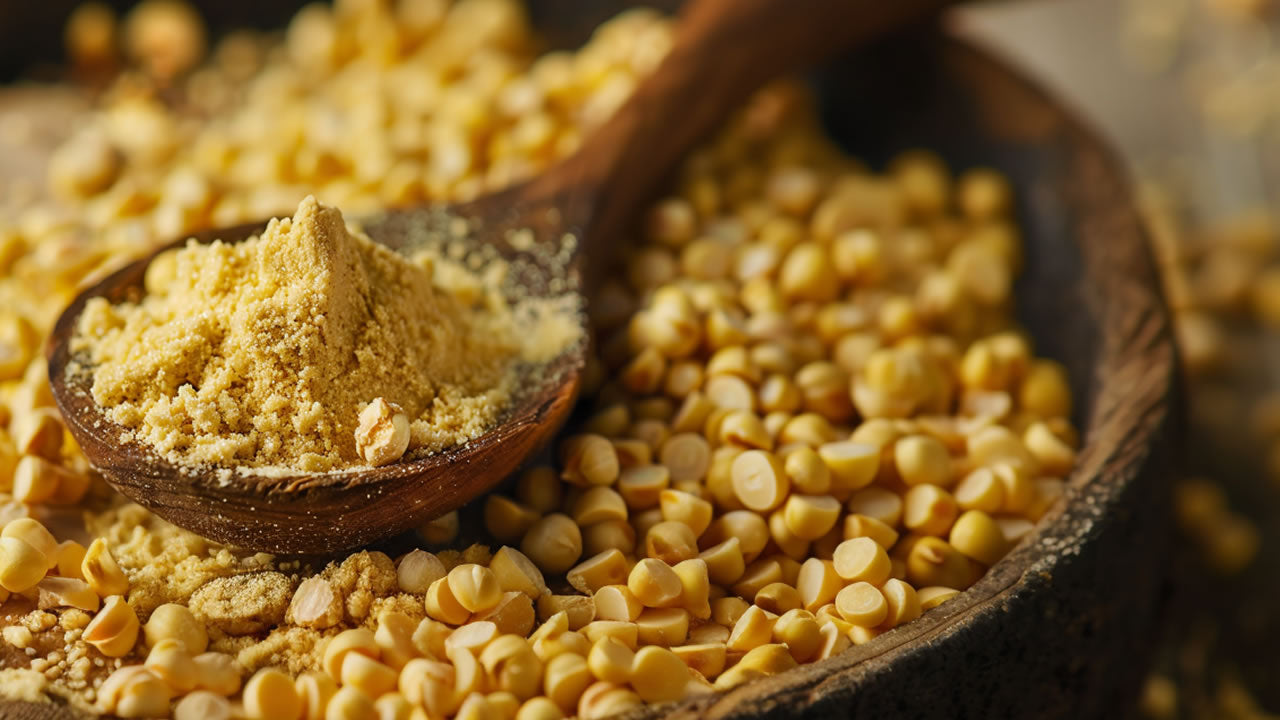Pea protein has emerged from the shadows of more traditional protein sources to become a shining star in the world of nutrition and sustainability. Pea protein's journey to prominence is fueled by its impressive nutritional profile, health benefits, and notably, its minimal environmental footprint, offering a compelling alternative for those looking to make more conscious food choices.
As the world becomes increasingly aware of the impact of dietary choices on health and the environment, pea protein stands out as a sustainable and healthful option. It caters to those seeking to build muscle or manage weight and individuals with allergies to common protein sources like dairy or soy.
So, what makes pea protein a remarkable choice for the modern diet?
Whether it is its nutritional profile or the macronutrients it provides, there are benefits to incorporating pea protein into your dietary regime.
Before you begin - always consult your physician before beginning any exercise (or dietary) program(s). This general information is not intended to diagnose any medical condition or to replace your healthcare professional. Consult with your healthcare professional to design an appropriate exercise prescription (or dietary program) that's right for you.
The Nutritional Profile of Pea Protein

As pea protein garners acclaim, it's time to understand its nutritional foundation.
What is Pea Protein?
Pea protein is derived from yellow split peas, a staple in the plant-based nutrition spectrum. It's a high-quality protein source that's gained traction for its digestibility and absence of allergens commonly found in other proteins.
Extraction and Production Process: The journey from pea to protein powder involves a series of steps: drying, grounding the peas into flour, separating protein from fiber and starch, and finally, purification and drying of the protein extract. This process ensures that the integrity of the protein is maintained and a clean, concentrated protein source is produced.
What is the Protein Content Per Serving of Pea Protein?
Pea protein offers roughly 15 to 25 grams per serving, making it a formidable ally for muscle repair and growth.
Carbohydrates and Fat Content: While primarily known for protein, pea protein powders are generally low in carbohydrates and fats, aligning well with various dietary goals.
What Vitamins and Minerals are in Pea Protein?
Beyond its impressive protein content, key nutrients within pea protein are a good source of iron and essential amino acids, facilitating oxygen transport and muscle recovery.
Comparison with Other Protein Sources: When measured against other plant-based proteins, pea protein shines for its balanced amino acid profile and higher iron content, offering a competitive edge for those seeking comprehensive nutritional benefits without the environmental footprint of animal-based proteins.
The Health Benefits of Pea Protein

Pea protein is gaining traction as a formidable plant-based protein. It contains an array of health benefits ranging from muscle development to heart health.
Muscle Growth and Recovery with Pea Protein
Pea protein stands out for its rich content of branched-chain amino acids (BCAAs), particularly arginine, which plays a pivotal role in muscle building. Unlike other plant-based proteins, pea protein provides a complete amino acid profile, essential for muscle repair and growth after exercise.
Research underscores the effectiveness of pea protein in muscle synthesis. Consuming pea protein shows comparable gains in muscle thickness to those ingesting whey protein (especially when combined with resistance training).
Pea Protein's Role in Weight Management
Pea protein can be an ally in weight management, thanks to its ability to promote feelings of fullness. This effect is attributed to its high protein content, which is known to have a higher satiety effect than fats and carbohydrates, thereby aiding in reducing overall calorie intake.
Pea protein's low glycemic index and ability to stabilize blood sugar levels make it a suitable protein option. The protein's slow digestion rate ensures sustained energy release, helping to curb cravings and prevent overeating.
Pea Protein's Impact on Heart Health
Incorporating pea protein into your diet can contribute to heart health by lowering levels of LDL (bad) cholesterol.
Pea protein's plant-based origin means it is naturally low in cholesterol and saturated fats, which are known contributors to heart disease.
The Hypoallergenic Nature of Pea Protein
Pea protein may be the missing puzzle piece for those dealing with allergy issues. For individuals who find themselves at odds with common protein sources like dairy or soy, pea protein offers a safe option. Its hypoallergenic nature makes it a highly inclusive option, extending the benefits of protein supplementation to a broader audience.
This characteristic is particularly significant given the increasing prevalence of food allergies and sensitivities. By incorporating pea protein into their diets, individuals with these concerns can enjoy the nutritional benefits of a high-quality protein source without the fear of allergic reactions.
Is it Time to Embrace Pea Protein?
Pea protein is a standout contender. Its impressive nutritional profile, paired with the health benefits it offers, makes it a powerful alternative to traditional protein sources. It's a dual threat: health benefits and environmental sustainability.
Try it on for size!
We feature pea protein in our latest pretzel innovation.
They're called "FITZELS!" Check 'em out »

 Lenny and Larrys
Lenny and Larrys
